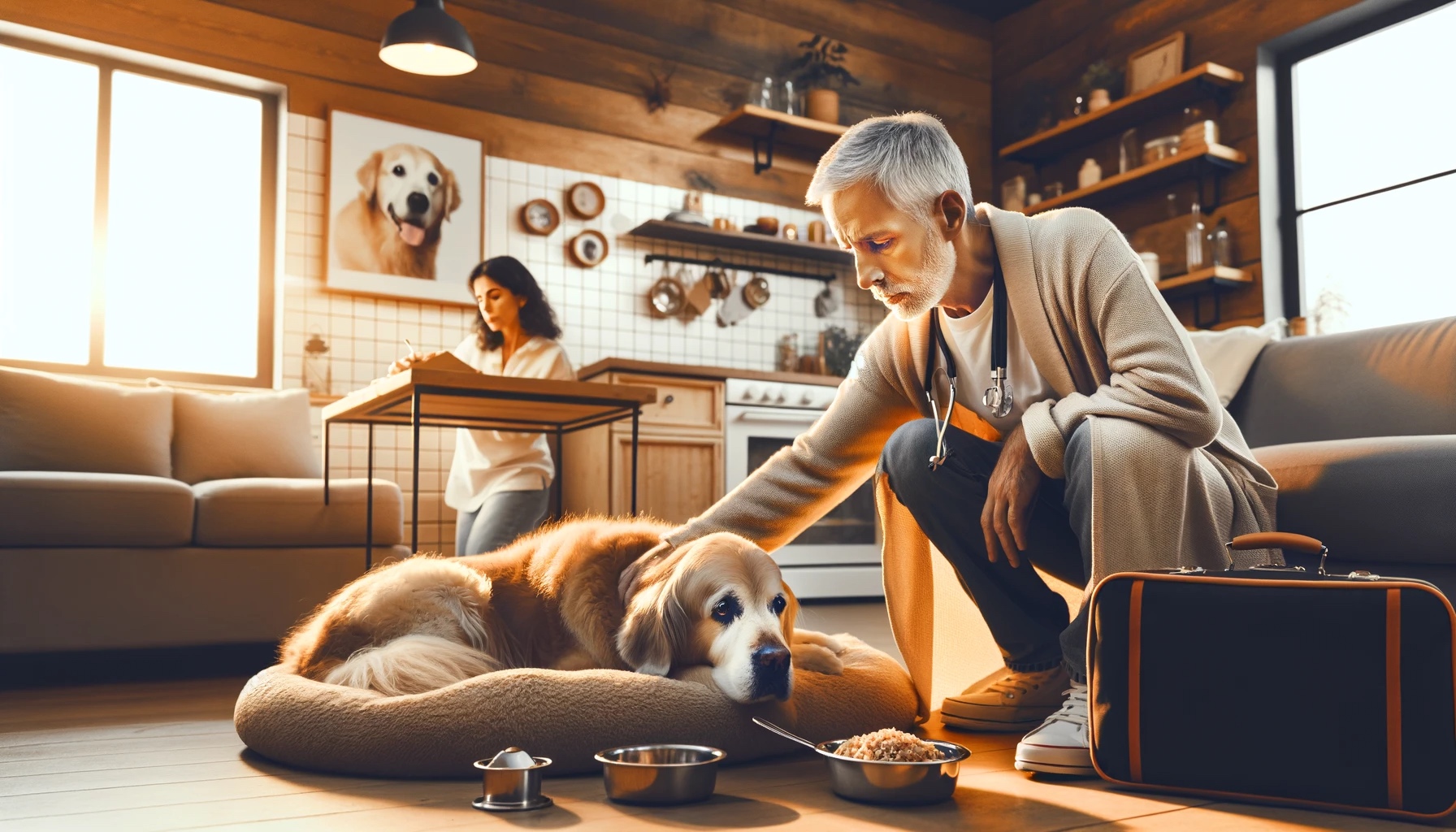Home>Health & Wellness>Behavior & Cognitive Care>Behavioral Changes>Old Dog Not Eating: Understanding the Causes and Finding Solutions


Behavioral Changes
Old Dog Not Eating: Understanding the Causes and Finding Solutions
Modified: March 1, 2024
This blog aims to provide you with insights into the causes of this behavior and practical ways to entice your furry friend back to their bowl.
(Many of the links in this article redirect to a specific reviewed product. Your purchase of these products through affiliate links helps to generate commission for Pawsomeoldies.com, at no extra cost. Learn more)
When your senior dog turns away from their food, it’s natural to feel concerned. Old Dog Not Eating is a common issue faced by many pet owners. This blog aims to provide you with insights into the causes of this behavior and practical ways to entice your furry friend back to their bowl.
Recognizing the Signs of a Reduced Appetite
It’s essential to distinguish between a dog who is merely eating less and one who is refusing to eat at all. A gradual decrease in appetite is normal as dogs age due to reduced activity levels and slower metabolism. However, a complete refusal to eat can signal more serious health concerns.
Common Causes of Appetite Loss in Older Dogs
- Aging: As dogs grow older, their nutritional needs change, and they may naturally eat less.
- Dental Problems: Issues like tooth decay, gum disease, or jaw arthritis can make eating painful.
- Health Conditions: Various medical issues, including digestive problems, cancer, and cognitive dysfunction, can lead to a loss of appetite.
Environmental Factors Influencing Appetite
Changes in your dog’s environment can impact their eating habits. Consider recent changes like moving houses, new family members, or alterations in daily routines. Even changing your dog’s food bowl or feeding location can affect their willingness to eat.
Dietary Changes and Their Impact
Switching your dog’s food can cause stomach upset or simply be unappealing to them. Gradually introducing new food and ensuring it’s high-quality and suitable for senior dogs is crucial.
The Importance of Dental Check-Ups
Regular dental check-ups are vital. If your old dog is not eating, inspect their mouth for signs of dental issues. Timely veterinary intervention can alleviate pain and restore their appetite.
Recognizing Serious Health Issues
Don’t overlook symptoms like vomiting, weight loss, diarrhea, or changes in drinking and urination habits. These could indicate serious health problems such as liver disease, kidney disease, or cancer, requiring immediate veterinary attention.
Strategies to Encourage Eating
- Warm the Food: Warming food can enhance its aroma and make it more appealing.
- Try Wet Food: If your dog usually eats dry food, introducing wet food can stimulate their appetite.
- Hand-Feeding: Sometimes, the personal touch of hand-feeding can encourage your dog to eat.
- Use Appetizing Add-ons: Adding a spoonful of canned pumpkin, chicken broth, or plain yogurt can make the food more enticing.
The Role of Exercise and Stimulation
Light exercise can stimulate your dog’s appetite. Even a short walk or gentle playtime can make a difference.
Consulting with a Veterinarian
It’s essential to consult with a veterinarian if your old dog refuses to eat. They can conduct tests to diagnose any underlying health issues and recommend appropriate treatments or dietary adjustments.
The Impact of Medications
Certain medications can affect your dog’s appetite. If your dog is on medication, discuss with your vet the possibility of appetite-related side effects.
Monitoring Weight and Hydration
Keep a close eye on your dog’s weight and hydration levels. Significant weight loss or signs of dehydration warrant immediate veterinary attention.
Maintaining a Comfortable Feeding Environment
Ensure your dog’s feeding area is quiet, accessible, and comfortable. Dogs with mobility issues might find elevated feeding bowls easier to use.
Tailoring the Diet to Your Dog’s Needs
Consider your dog’s specific dietary needs and preferences. Senior dog food formulated for older dogs can provide the necessary nutrients in a more digestible form.
Wrapping Up: A Compassionate Approach
Dealing with an Old Dog Not Eating requires patience, understanding, and a proactive approach. Each dog is unique, and what works for one may not work for another. Stay attuned to your dog’s needs, and don’t hesitate to seek professional advice to ensure they remain healthy and happy in their golden years.
